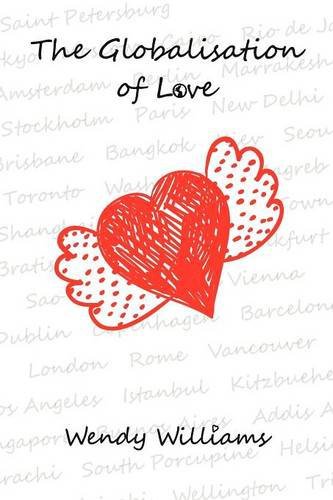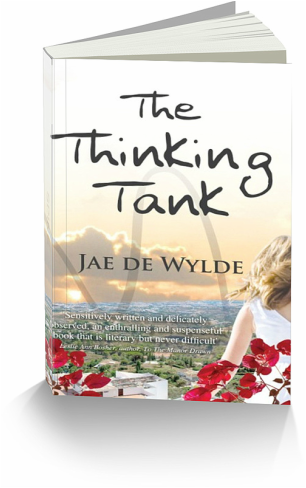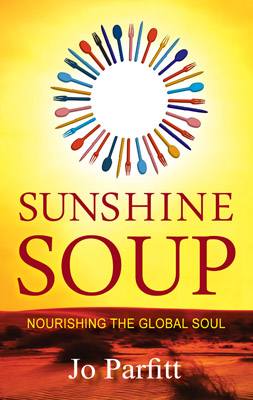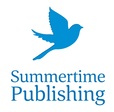 In this guest post for the Expat Bookshop, Shelley Antscherl shares her own experience of cross-cultural family life and how she could identify with Wendy Williams’ recently released Globalisation of Love. Love and other creatures As the retired veteran of a Six Year War with my Jewish Mother-in-Law I’m fascinated by the trouble and strife that can dog the path of true love when marrying into another class, faith or culture, even when couples share the same nationality. For my own part, I’d tried and failed to get along with the trickiest of creatures in the early days of my marriage but it was only years later that I finally understood that the catalyst for our discord wasn’t just personal, it was also cultural. Although I was not Jewish when we met, my husband and I are both British with similar backgrounds, and as non-observant Liberal Jews my husband’s family initially welcomed and accepted me into the fold, and to begin with everything looked peachy. But one cultural trait was observed religiously at all times, and that was my Mother-in-Law. At first I relished being part of a close family unit and even enjoyed playing the role of dutiful daughter-in-law, especially as my Mother-in-Law could be fun and entertaining company. But this self-appointed matriarch was feared and revered by the rest of her family and determined to be involved in every aspect of her adult children’s lives, invited or uninvited. Before long her compulsion to control everyone around her, including my husband, began to jeopardize our wedded bliss and ultimately our future together. Our views on my position in the family pecking order were just irreconcilable, and eventually this stark realization combined with my husband’s gradual awakening to her more vindictive tactics led to years of bitter estrangement. Of course I wasn’t blameless. As a young woman joining a very close family I could have capitulated occasionally to keep the peace, but instead chose to stand my ground whenever I thought I was being undermined, which felt like all the time. So when I stumbled across a new book called The Globalisation of Love about mixed marriages in the modern age, it really struck a chord. Canadian author Wendy Williams has written a highly evocative, yet humorous guide to relationships that cross all frontiers. And given the fact she’s married to an Austrian and now living in Vienna, she’s certainly no stranger to the concept of mixed marriage herself. With increasing numbers of people moving around the globe to live and work, love now overcomes barriers like never before and blended unions in all their forms are now everywhere we look. With amusing anecdotes and witty repartee throughout, Williams has succeeded in writing something that is both enlightening and amusing. So instead of bemoaning your bad luck for acquiring some ghastly old relatives along with your perfect partner, sit back and count your blessings. I know I did. Because although I don’t miss my Mother-in-Law, I owe her two big debts of gratitude: firstly for producing my wonderful husband, and secondly for unwittingly giving us the push we needed to immigrate to British Columbia… Shelley Antscherl Shelley Antscherl – Journalist, expat and mother of four living in British Columbia.  What writing experience did you have before you decided to write The Thinking Tank? Writing has been a passion for as long as I can remember – right back to when I created a magazine at school! I read French and German at Bristol, so analysing the written word and writing were part of my daily routine – and the same goes for my job as a French and German teacher. It was only later, though, in my thirties that I began to write – and have published – freelance pieces, particularly on Education. With a switch in career, I then became Editor for Travelsphere Holidays, the UK’s number one direct sales holiday company – and from there was headhunted to run Embrace Magazine. When my husband’s work moved us to the Middle East I got my chance to write in my own style, expressing ideas from the heart – and so The Thinking Tank was born. Why did you choose to write a novel and how did writing it differ from your previous writing? Apart from some poetry and short stories, I have never written fiction but felt absolutely impelled to take on that challenge – as if something inside were gnawing at me, driving me on to write a novel. It was a totally different experience – and much more exciting. I know this is a cliché and when I have heard authors bang on about it before I have dismissed the whole idea, but the characters really did write the novel, as if I were simply unfolding a story that they had already lived. It was a fascinating journey. I remember telling my husband that I simply needed to go and write the next chapter as I needed to find out what would happen to Sarah! My voice is also completely different when I write fiction. I guess my magazine style was pretty chick lit whereas I take inspiration from my literary background when writing a novel. You chose to set part of your novel in Spain. You too have lived abroad and are a linguist, so it seems that expat life is important to you. What do you think expats will get out of reading The Thinking Tank? Aside from identifying with the contrasting cultures – food, wine, smells, colours, weather and attitudes, expats more than anyone, I feel, get the whole idea of reinvention. You can pretty much start all over again each time you move on, be whoever you want to be, if you’ve a mind – or a need – to. More than anything, the message in The Thinking Tank is that your past doesn’t have to define your future and that change is possible. To be an expat is to embrace change but sometimes even in an environment which promotes that very concept, our history keeps us static. Sarah is having to adapt to a whole raft of external changes – and fast, including allowing herself to be open to an alien culture in more ways than one. I feel sure this will resonate with all of us who have been abroad and adrift! Your heroine, Sarah, has a debilitating illness that is crucial to the plot? How much of this part of the story is drawn from your own experience? The first beads of the idea of The Thinking Tank came to me precisely when I was in a hyperbaric oxygen tank undergoing treatment in just the same way that Sarah does in the novel – and for the same condition. I started wondering what would happen if anything were possible in the period of time you were stuck in the tank – 2 hours per day, 5 days a week for a year in my case. With a furtive imagination, all sorts of plotlines started developing and Sarah’s story – her pain, actual and metaphorical, the need to move forward and the challenge and joy of reengaging with life – is the result of that experience. Like Sarah, you too have a grown-up daughter. How did you avoid the inevitable comparisons and prove to others and to your daughter that the story is not based on her? In actual fact, you rarely get to prove to your readers anything about what is and isn’t true since very often you have no idea who or where they are! I started writing The Thinking Tank with an altogether different name in mind for the character of Sarah’s daughter and then somehow it just didn’t fit – so I popped Rebecca’s name in – but spelled it Rebekah, the Hebrew way, meaning to change it again at a later date, but then just couldn’t get anything to fit. When I had finished, I asked Rebecca to read the novel and to decide if she wanted me to find another name, which I would absolutely have done. She loved the story though, and found it uplifting. She told me she’d be honoured to have her name in the book. I included a dedication thanking her – and now she has promptly changed the spelling of her name to ‘Rebekah’ as she likes it better! There are few similarities between Rebecca and Rebekah in fact – as anyone who knows my daughter will immediately see – but I tend to think that if I protest too much, readers will think the opposite, so the acknowledgement I have included will just have to do the job! Once you had finished the book, you have found that this was not ‘the end of the journey’. You have had to get to grips with new technology, social media and more. Can you tell us what this has been like for you and how it has changed your view of publishing? Gosh, this is quite a biggie for me! I never realised just how much would be involved once the author puts down the pen, looks up from the manuscript and re-enters the real world to see if there is anyone out there who is interested in what has been written. It’s been a massive learning curve. I found the whole writing of the synopsis way more difficult than actually writing the novel – what to include, what to leave out, how to give the facts without making what is actually a fast-paced page-turner with emotional highs and lows and challenging issues sound pedestrian! And even when you have found someone who wants your work (big hurrah for that!), there is still so much still to achieve. The publisher has a whole vocabulary of terms, which, even though I was involved in print-buying and production at Travelsphere, were alien – largely because in those few years so much has changed. There is much to do in terms of proofing, revision, decisions and working with the designer to create a cover that resonates with your market. And the technology! I scarcely knew what an e-book was until The Thinking Tank was about to become one! I am now a huge Kindle fan in fact, so life expands in unexpected ways. I have never been into social media and have had to learn rapidly that this is an essential tool in the marketing ofThe Thinking Tank. I suppose I had a glamorous vision of phone calls inviting me to this and that just because I was a published author. Forget all that – it’s hard slog and sometimes painful – tweet, blog, message, tweet – and although most people have been lovely, not everyone will be on your side. But the journey into these realms is worth everything when someone you don’t know messages you on Facebook and says they are lying on a beach in Tobago and have just finished your novel – that they loved every page and want to know when to expect the sequel!
|
�
All the latest news from the team at Summertime Publishing
As an Amazon Associate, we may earn a commission from qualifying purchases. This does not affect the price you pay or your consumer rights.
Archives
June 2024
|


